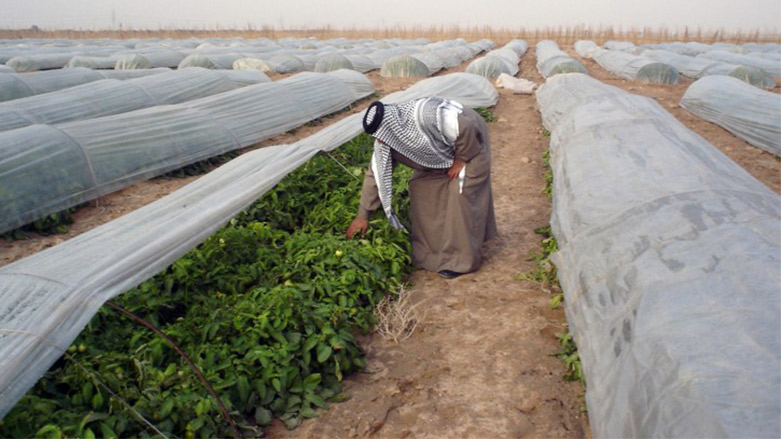Urgent support needed for farming in IS-affected areas: UN

ERBIL, Kurdistan Region (Kurdistan 24) - A recent assessment by the Food and Agriculture Organization of the United Nations (FAO) found that the conflict with the Islamic State (IS) has severely degraded the ability to produce food in Nineveh, Kirkuk, and Salahadin provinces.
According to a Feb. 14 FAO statement, even regions liberated from IS control in 2015 have significant damages and losses across all agricultural sectors. These include crop production, livestock, and fisheries/aquaculture.
The statement stressed the need for urgent support, “to restore crop production, farmers require seeds, fertilizers, pesticides and tools, as well as the repair of farm machinery and damaged irrigation systems.”
The three provinces previously contributed nearly half of Iraq’s national production of cereals, such as wheat and maize, and therefore, according to the statement, “contributed significantly to national food security.”
In addition to assessing the amount of food produced, the statement also addressed the livelihoods of local farmers, stating that income generated from increased production as a result of the recommended support, “would enable farmers to repay their debts, invest in their livelihoods and repair other farm infrastructure such as silos and storage facilities.”
Earlier in the week, at the Kuwait International Conference for the Reconstruction of Iraq, the FAO Iraq actively called for urgent funding to assist 1.6 million people through the Iraq Recovery and Resilience Programme 2018-2109, stating that about 12 million Iraqis, almost a third of the country’s population, reside in rural areas and depend on agriculture for their livelihoods.
The UN agency, “put forward a wide-ranging programme of assistance that ranges from rehabilitating irrigation systems to veterinary services, and is seeking urgent funding to assist 1.6 million rural inhabitants in 2018-2019,” according to an earlier statement, released on Monday.
